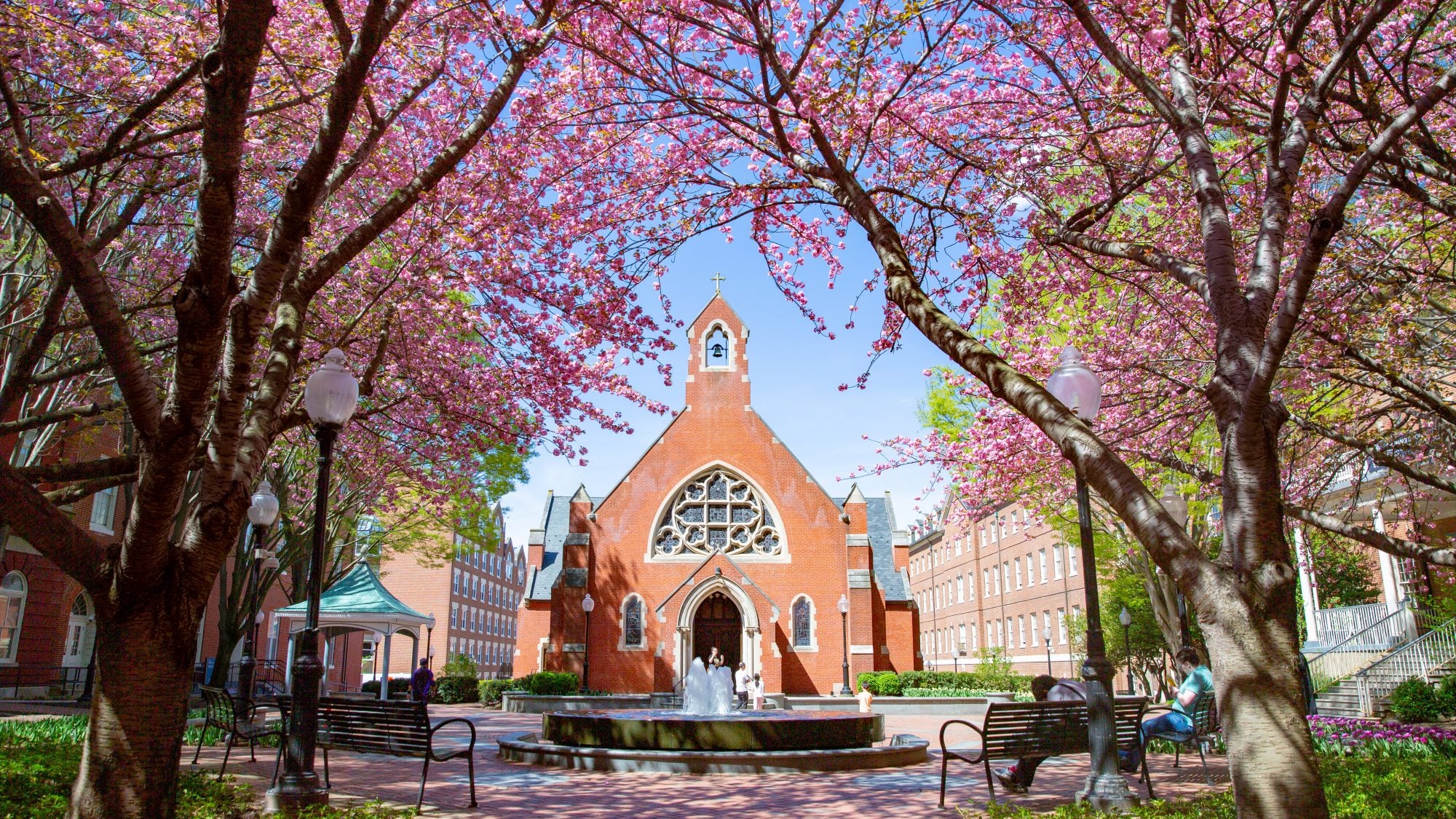Georgetown received positive affirmation of its Catholic, Jesuit identity from the leadership of the Society of Jesus.
During the previous academic year, Georgetown participated in a self-study evaluating its Catholic, Jesuit mission as part of the Mission Priority Examen (MPE).
Led by the Association of Jesuit Colleges and Universities, MPE provides Jesuit colleges and universities across the U.S. an outlet to conduct a self-study and peer-review process to reflect on their Catholic, Jesuit mission and set goals for the future.
After completing a self-study report in December 2023 and hosting a peer-review team in January 2024, Georgetown sent its reports to the superior general of the Jesuits in Rome, Rev. Arturo Sosa, S.J., and the local Jesuit leadership, Rev. Joseph O’Keefe, S.J., provincial of the USA East Province. This fall, Fathers Sosa and O’Keefe affirmed Georgetown’s MPE process and its ensuing goals.
The self-reflection came at an important moment for Georgetown as the university added a Capitol Campus in downtown Washington, DC, while expanding its global presence and partnerships. The process also came at a time when Georgetown is aiming to build a more diverse and inclusive community amid a time of increased division and polarization around the world.
Over fall 2023, leaders from across the university participated in 24 listening sessions convened by members of the MPE Self Study Study Committee. The Self Study Committee was led by Jeanne Lord, senior advisor to the president, and Rev. Stephen Sundborg, S.J., then special assistant to the president and now chancellor at Seattle University, in close collaboration with Rev. Mark Bosco, S.J., vice president for mission and ministry.
“It is important to take a step back and reflect on how we as a Georgetown community are living out our Catholic, Jesuit mission every day,” Bosco said. “The Mission Priority Examen gives us that space and opportunity to examine and reaffirm our values.”
This year, Jesuit colleges and universities considered seven themes in the self-study process: leadership and public commitment to mission; academic life; pursuit of faith, justice and reconciliation; promoting an Ignatian campus culture; service to the church; relationship to the Society of Jesus; and institutional integrity.
Member institutions also reflected on the four Universal Apostolic Preferences from the Society of Jesus, a set of priorities identified through a process of discernment by the global Jesuit community that will guide the Society’s work over the next decade.
“The committee took a deep and thoughtful look at each of the seven characteristics and four Universal Apostolic Preferences to reflect on how Georgetown has lived according to these values,” Lord said. “We’re committed to strengthening our work in these areas as we look ahead.”
As part of the process, Georgetown invited representatives from four other Jesuit universities who visited and joined 17 listening sessions in January based on Georgetown’s self-study.
After completing the reflection process, committee members produced a self-study report and laid out three priorities for Georgetown in the years ahead, including committing to expand programs that express the university’s identity and mission as well as continuing to invite the Georgetown community to engage in the Ignatian spiritual tradition. The committee also emphasized its goal to develop a robust Ignatian campus culture on the Capitol Campus to strengthen the Jesuit character of Georgetown’s new campus and its engagement with the wider DC community.
Georgetown’s last self-study, completed in 2018, resulted in the creation of the Mission Advisory Board. The Mission Advisory Board explores opportunities to deepen and broaden the university’s Catholic and Jesuit mission and assesses the work on other priorities that have come up through the MPE process.
“As we look ahead to where Georgetown is going, our Catholic, Jesuit mission must be at the top of mind,” Sundborg said. “We’re looking forward to deepening our work and continuing to integrate our values into every aspect of the university.”
